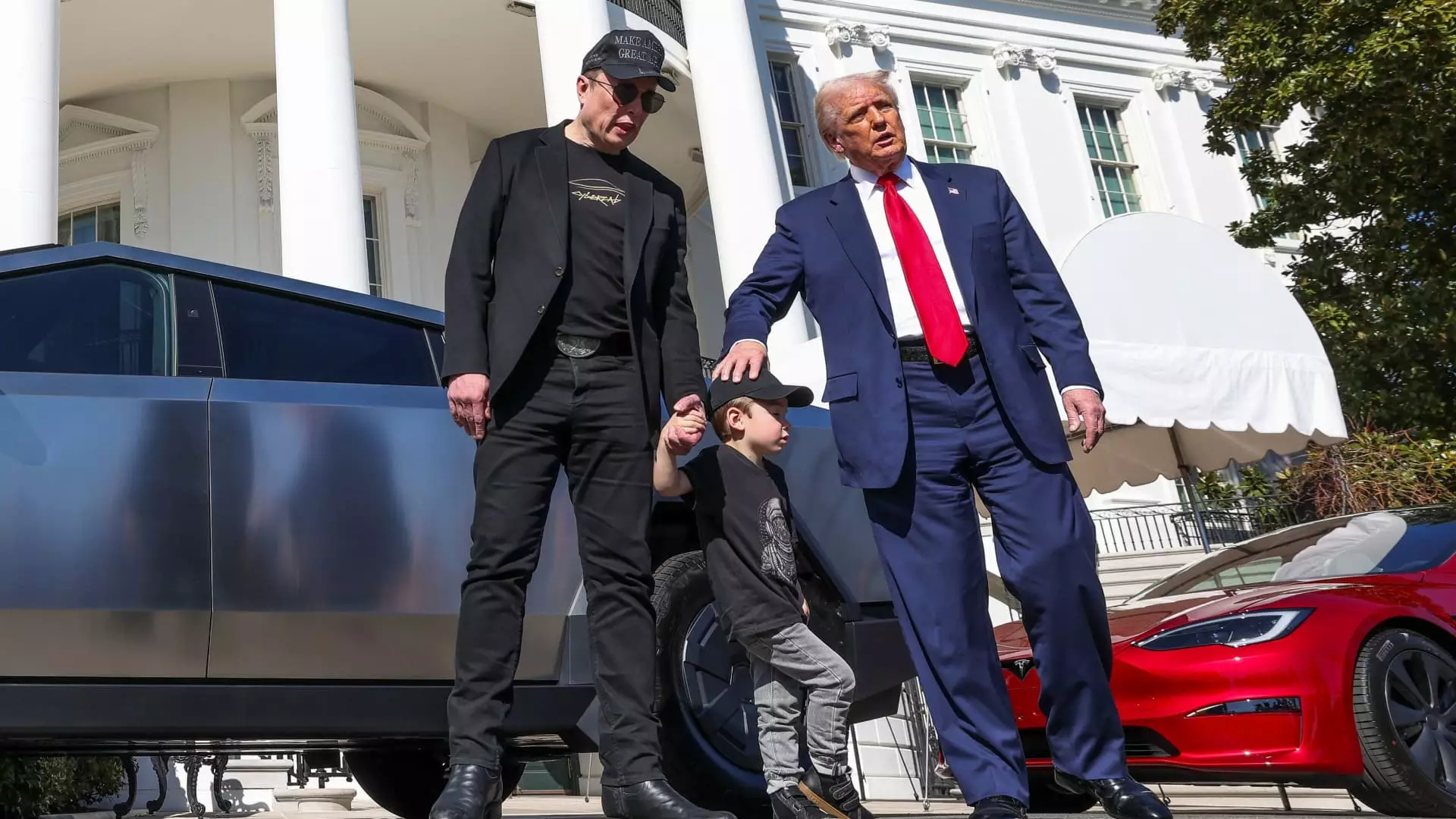Elon Musk has become a prominent figure in discussions surrounding tariffs, particularly as they impact his electric vehicle company, Tesla. During a recent earnings call, he expressed his discontent with high and unpredictable tariffs, underscoring that any changes hinge “entirely on the president of the United States.” This highlights an essential problem; while business leaders like Musk can offer insights, they remain at the mercy of political decisions that can dramatically impact the economy. The current trade climate is fraught with uncertainty, creating a difficult environment for companies striving for stability and growth.
Musk’s awareness of tariffs stems from the broader implications they have on the automotive sector, notably for manufacturers dependent on complex supply chains that span multiple countries. He emphasized that Tesla is better positioned than many of its U.S. competitors due to its “localized supply chains” across North America, Europe, and China. However, this confidence must be tempered by the reality that most corporations cannot entirely insulate themselves from tariffs, leading to a precarious balance that businesses must maintain in their operational strategies.
Tesla’s Turbulent Financials
Despite Musk’s optimistic positioning, Tesla’s recent earnings report painted a more worrying picture. The company experienced a staggering 20% decline in year-over-year automotive revenue coupled with a disheartening 71% drop in net income. These numbers serve as a wake-up call not only for Tesla but for the entire automotive industry, which must grapple with the repercussions of the evolving trade landscape. The lack of guidance for 2025 in their earnings forecast raises red flags, indicating either uncertainty about future revenue streams or perhaps an acknowledgment of the tumultuous economic conditions that could lie ahead.
The panic surrounding Tesla shares is palpable. With a 36% decline in stock prices during the first quarter—the worst quarter since 2022—investors are understandably skittish about the company’s trajectory. In the face of a possible widespread tariff initiative proposed by President Trump, concerns about supply chain vulnerabilities have grown, highlighting how swiftly external factors can influence market performance.
A Complex Relationship with the Trump Administration
Interestingly, Musk’s relationship with the Trump administration is one of complicated layers. As one of Trump’s closest advisers, Musk has been vocal about certain policies, but tariffs appear to be a contentious point of divergence. His public call-out of Peter Navarro, Trump’s chief trade advisor, juxtaposes his advisory position with a need for honest discourse on economic strategy. This duality reveals the intricate roles business leaders must play—often navigating the fine line between advising policymakers and publicly espousing opinions that may well contradict administration stances.
Musk’s assertion that he believes lower and predictable tariffs can create a more favorable trading environment reflects a broader ideology in favor of free trade. He emphasized the necessity for businesses to have stability in their supply chains and operational costs, which can be significantly altered by erratic tariff policies. This is particularly critical for an industry that relies on precise manufacturing needs, where every percentage shift in tariff can ripple through costs and prices.
The Path Forward for Tesla and Resilience in the Face of Adversity
Yet, despite the perils presented by tariffs and international trade policies, Musk remains cautiously optimistic about Tesla’s capacity to innovate and adapt. He noted the ongoing initiative to localize the manufacturing of lithium iron phosphate (LFP) battery cells within the United States, an essential step toward mitigating dependence on Chinese imports. While highlighting the challenges and time required to establish these domestic supply chains, Musk underscored Tesla’s commitment to resilience and self-sufficiency in production.
The company’s ambition to become a vertically-integrated car manufacturer signals a strategic pivot that may offer some buffer against global trade fluctuations. However, Musk acknowledged the limitations of existing efforts, noting, “we’re not growing rubber trees and mining iron yet.” This candid reflection on the complexity of global supply chains is a reminder that there is still much work to be done.
In this evolving economic landscape, Musk’s perspective on tariffs and Tesla’s strategies for navigating them underscores a significant truth: success in the modern market will require adaptability, foresight, and, perhaps most importantly, a willingness to engage constructively with policymakers. The intricate interplay between business operations and governmental decisions will undoubtedly shape the future of not just Tesla, but the automotive industry as a whole.


Leave a Reply